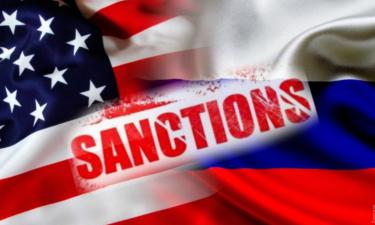Russia's leading news agency decides to make a fortune on Victory Day?
9/11 terrorist attacks in the USA resulted in an outbreak of American patriotism indeed, when Americans became aware of themselves as a nation
What will a good spin doctor or an advertising agent do for his company on the threshold of an important national date? They will definitely not be sitting on their hands, but try to make their presence as conspicuous as possible. What will a common conscientious person do? He or she will definitely swallow the bait of a spin doctor selling his goods under the disguise of national and human values. 
There are certain eternal issues that will never lose their actuality but will always be in demand in the society: religion, family, patriotism. Successful commercial agents use all these values to promote their goods. The family issue, for instance, has a much more personal character; it is local in its own perception, whereas patriotism is much bigger in scale.
The state is the central monopolist on the market of commercial advertising. Maintaining its image among the population is one of direct obligations of the state. Strengthening the nation's self-consciousness, unity and evoking patriotic sentiments in the society – these are attributes of the state advertising policy. The market economy, however, dictates its own laws. Needless to say that almost all commercial companies dream to stick to a well-known brand. The phenomenon started in the USA at first, where the state encouraged the use of national symbols on the nation's commercial market. The state apparently forgot to draw the line of what could and could not be done as far as the commercial use of state symbolism is concerned. We would not dwell upon globally-typical swindling activities, when fraudsters make money playing on people's feelings. However, there can be a different kind of occurrences, when law-abiding citizens and companies try to swindle.
9/11 terrorist attacks in the USA resulted in an outbreak of American patriotism indeed, when Americans became aware of themselves as a nation. Such patriotic sentiments boosted the industry producing patriotic attributes – from little flags to socks. Especially creative entrepreneurs did not feel shy to use the issue for advertising erotic services. It could not but raise a negative reaction on the part of US citizens, who claimed that no one – either striptease bars or large corporations - could use the national symbolism in commercial services.
Russia also experiences a boom of patriotic games presently. The recent celebration of the 60th anniversary of Victory over Nazism became quite a tidbit for many enterprising Russians. It is worth mentioning that the state was advertising this date not only nationally, but also globally, sending out invitations to world leaders to visit Moscow for celebrations. Needless to say that there were a lot of people, who decided not to miss such an opportunity for their own purposes.
It would not be profitable to decorate a certain product or a shop with a logo of the holiday in order to attract people's attention. Making Victory Day merchandising would not be profitable at all either: the celebrations lasted just of a couple of days. It was eventually decided to mix business with pleasure, so to speak, and decorate widely recognized symbols with quite a small detail. The black-and-yellow striped ribbon, known as St. George's ribbon, became the brightest symbol of the 60th anniversary of Victory in Russia. The colors are traditionally used in Russia during all May 9th celebrations to decorate cities and towns, post stamps and postcards. The ribbon was used for the creation of one of the most important decorations of the Great Patriotic War – the Order of Glory. The ribbon thus became the symbol of victory, glory and courage. The idea of the “St. George's Ribbon” action, which was organized by Russian news agency RIA Novosti, was more than remarkable: the news agency suggested fixing the ribbon to a car's antenna, clothes, a purse, a backpack, etc to glorify war heroes.
As it turned out, however, it became absolutely unacceptable for the news agency to make those ribbons and give them away to people. RIA Novosit is one of the oldest and most famous media outlets in Russia. It would only be enough for the agency to announce its initiation of the public action. Someone believed that it would not be enough: they decided to mark every ribbon to let everyone know, who originally decided to run such an action in the Russian society. It did not even occur to them why they were being attacked for it. “Who cares! Such tiny writing on the ribbon produced such a scandal. We were doing it for the people, to make them remember the victory and us,” a spokesperson for the news agency said.
The continuation of the story looks even more ridiculous, when Russian radio station Silver Rain claimed its rights for the idea of the “ribbon action.” The radio station accused RIA Novosti of plagiarism. The radio station initiated a similar action a year ago. The action was called a “White Kerchief:” the station offered car owners to tie white ribbons on their cars as a token of protest against lawlessness on Russian roads: high insurance tariffs, studded tyres tax, blocking roads for high-ranking officials, etc.
It brings up the idea that the radio station was complaining of the fact that it had missed its profit in the case with St.George's ribbon. The blasphemous attitude to the national symbol had nothing to do with it. Brushing all details of the squabble aside, one may say that the situation bears some resemblance to competition between two companies that protect their right for selling this or that product. One side of the fight says that it was RIA Novosti that ripped off the idea with the ribbon, others ridicule their opponent and say that it was their national duty.
Positioning the public action as a voluntary undertaking, but making it look like commercial activities and thus equating them to the celebration of the 60th anniversary of Victory over Nazism make the whole initiative quite immoral, albeit commercially justifiable. It does not matter, whether the profit that the news agency obtained had financial or advertising value.
Igor Kulagin
Subscribe to Pravda.Ru Telegram channel, Facebook, RSS!





